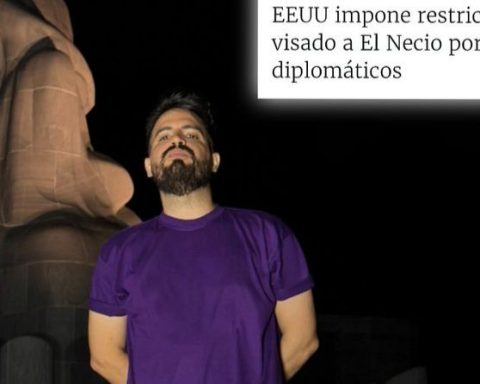Miguel Diaz-Canel was re-elected this Wednesday for a second and last term as president of the Republic of Cuba, during the Constitutive Session of the X Legislature of the National Assembly of Popular Power (ANNP).
Díaz-Canel, 62, was elected with 97.66% of the votes of the deputies who took their seat in the island’s parliament that day, according to a report by the agency Eph.
Happy Victory Day, #Cuba. Because 62 years ago, in #PlayaGirón, heroism defeated the invasion. And because in homage to the heroes, today the X Legislature of the #AsambleaDelPueblowhich will elect the main positions of the country pic.twitter.com/seW8H6yVVy
— Miguel Díaz-Canel Bermúdez (@DiazCanelB) April 19, 2023
The Cuban president headed the only candidacy proposed by the presidency of the legislative body and obtained the support of 459 of the 462 deputies present, according to the official count offered by the National Electoral Council (CEN).
Salvador Valdés Mesa, who had already held that position for the past five years, was also re-elected as Vice President of the Republic. On this occasion, he obtained 93.4% of the ballots (439 of the 462 counted).
Shortly after his re-election as head of the country, Díaz-Canel proposed to the members of the ANPP that Manuel Marrero Cruz remain in the position of prime minister during the next term.

Both leaders will once again assume high responsibilities in the midst of the serious crisis that the island is going through, for some years marked by the impact of the COVID-19 pandemic, the tightening of sanctions imposed by the United States Government, and the little effect of the measures taken internally to reverse the complex economic situation.
The leaders who will continue to lead the country will have the enormous challenge of solving the marked shortage of basic products (food, medicine, and fuel), the inflationary spiral that is hitting the limping economy, the marked inability to generate electricity that the development of the nation, all triggering an unprecedented migratory flow abroad.
Other ratifications
In addition, Ramiro Valdés Menéndez, Inés María Chapman, Jorge Luis Tapia Fonseca, Ricardo Cabrisas Ruiz, Jorge Luis Perdomo Di-Lella and Alejandro Gil Fernández were ratified as vice prime ministers.
The Cuban parliamentarians also elected the leadership of the legislative body, which will continue to be headed by Esteban Lazo, 79, who will once again be accompanied on the board by Ana María Mari Machado (vice president) and Homero Acosta (secretary).
The veteran political leader, in office since 2013, obtained the support of 443 of the 462 possible votes, which represents 96.1%.
According to current legislation, Lazo will also occupy the presidency of the council of statethe permanent body of the ANPP between its two annual sessions, which was partially renewed, although the main figures were maintained.
The 21 members of the candidacy presented for its formation obtained between 98 and 100% of the votes in the scrutiny.
On March 26, the 470 candidates for the parliamentary elections were elected to the same number of positions in the ANPP, with a attendance at the polls of 75.92% the electoral register.
Efe/OnCuba















